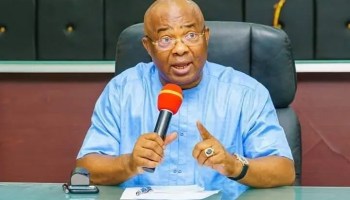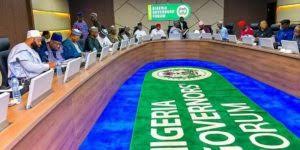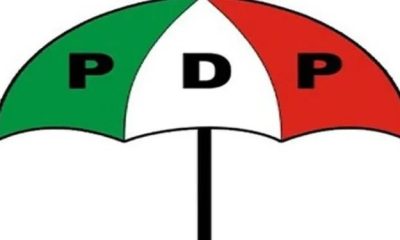NEWS
Dangote Refinery and Its Crude Supply Wars

By Akpandem James
Ever since the Dangote Refinery began production late last year, it has faced numerous challenges. It has been in conflict with many major players in the oil and gas industry, including the national oil company, Nigerian National Petroleum Company Limited (NNPC Ltd.
), as well as the two industry regulators: the Nigerian Upstream Petroleum Regulatory Commission (NUPRC) and the Nigerian Midstream/Downstream Petroleum Regulatory Authority (NMDPRA). The management of the facility has accused these entities of either directly sabotaging the refinery or attempting to do so by limiting its access to the required crude supply and penetration of the local markets.In the past two months, conflicts have been commonplace between the refinery’s management and the strategic operator and regulators. NNPC Limited and the regulators have denied all the accusations and maintained that their operations comply with the laws outlined in the Petroleum Industry Act, 2021 and the accompanying regulations.While Dangote Refinery’s management is presumably striving to meet its extensive demands, there is a concern among industry players that the new refinery owners are aiming to monopolise the sector without regard for existing rules and conventions governing global industry practice.Observers outside the industry view the ongoing conflict between Dangote Refinery and key players and regulators in the petroleum industry as a recurring pattern in the Dangote conglomerate’s business strategy. This strategy appears to involve eliminating competition and establishing a monopoly, as seen in previous conflicts in the cement, sugar and consumables’ markets.But the war in the oil sector intensified with accusations flying in all directions, including toward the NNPC, NMDPRA and, more recently, the NUPRC.It would be improper to assume that one would start such a huge venture and become complacent in the face of threats. However, there is still a debate on whether the Dangote Group adequately planned for a steady supply of raw materials when they first set up the refinery. Did they consider the issue of adequate raw material supply during the planning stage of such a mammoth refinery, or did they just assume that everything would fall in place once they commenced production?There have been many stories about the planning and building of the refinery. The extent of the Nigerian government’s involvement in the project is not widely known because both the organisation and the national oil company, NNPC Ltd, have been indecisive at different stages. It is unclear whether the issue of crude supply, which Dangote is insisting on, was part of the original agreement. If not, why would a private company, regardless of its importance to the national economy, try to dictate how it should be supplied?Dangote has complained several times about unfair competition allegedly caused by the activities of the NMDPRA and NNPC, as well as a shortfall in the supply of crude oil from the national oil production. The organisation claims that it has been unable to obtain its full crude oil requirements from domestic production. It also claims to purchase Nigerian crude oil from international traders at an additional premium of $3 to $4 per barrel.Because of the commotion caused by the flying allegations, the Federal Executive Council approved with the seal of the President that local refiners, including Dangote should have access to Nigeria’s crude oil which should be sold in the local currency, not in the United States Dollars – a significant industry policy shift.After the intervention, Dangote now acknowledges that it is receiving its share of supplies from NNPC Limited. However, it claims that the international oil companies (IOCs) are not following the oil supply guidelines set by the NUPRC. Initially, Dangote urged the NUPRC to enforce the Domestic Crude Supply Obligation (DCSO) in accordance with the requirements of the Petroleum Industry Act 2021. Later, it accused the Commission of being reluctant to enforce the provision, but the regulator strongly rejects this accusation.In an elaborate explanation through a statement, NUPRC asserted that it has consistently exercised its regulatory oversight to ensure that Dangote Refinery, along with other domestic refineries, receives a fair share of crude oil allocations, which is part of the Commission’s commitment to supporting the growth and success of the domestic refining sector in Nigeria.According to Section 109 of PIA 2021, the Commission is mandated to develop procedures for imposing DCSO based on the crude oil needs of domestic refineries. It claimed that as part of a strategic commitment to Nigeria’s energy security, the Commission facilitated the supply of 32,088,122 million barrels of crude oil to nine local refiners within the first half of 2024. Dangote Refinery alone had 29,047,098 million barrels of that volume.The Commission insists that, in order to ensure smooth operations, it collaborated with industry stakeholders to establish the Production Curtailment and Domestic Crude Oil Supply Obligation (DCSO) Regulation in 2023. Subsequently, it operationalised the PIA and the DCSO regulations to avoid shortages of crude oil supply to refineries. A tripartite committee was formed to recommend a template for the Commission’s consideration. It was the Committee’s recommendations that were used to develop guidelines for the operationalisation of the DCSO.The Commission claims that it not only started implementing metrics that require companies to dedicate between 29% and 34% of their production for sales to domestic refineries but also included Dangote and other domestic refiners as observers in Curtailment meetings to enable them to gain firsthand information about available cargoes before they are released to the market.The Commission also claimed that it engaged Dangote and local refiners on several occasions to ensure that their supply quota was met in line with the provisions of the PIA. It insisted that the operators have been kept informed throughout the process, so there was no question of reluctance to enforce crude supply against presumed erring operators.NUPRC however admitted that in strictly exercising its mandate on crude supply, it countered some challenges including the Mode of Crude Oil Production, the Doctrine of Sanctity of Contracts, and Pricing of Crude to Domestic Refineries. These have to do largely with the capital-intensive nature of petroleum upstream operations which require companies going into various financing arrangements, with pre-export financing obligations, resulting in production encumbrances.The Commission’s position is that while the law mandates all stakeholders in the upstream petroleum sector to supply crude to domestic refineries, there is also a disagreement regarding the pricing of the volume transferred to local refineries. As a consequence, the Commission is responsible for facilitating willing buyer and willing seller transactions without price control as well as ensuring that supplies to the refineries are not overpriced. It explained that while the Commission has capped the Federation Crude Equity (FCE) by the trading arm of the NNPC Limited, the same cannot be done for the Private Equity Crude (PEC) which belongs to other operators because of existing obligations.The explanation given was that, in attempting to enforce the Direct Crude Swap Offtake (DCSO) pre-existing commitments of operators must be considered because some operators are constrained by their financing arrangements and are already committed to entities that have provided funding for their operations, and are entitled to recover through crude supply. And this is not peculiar to Nigeria; it is an industry practice. “Much as the NUPRC has tried to ensure the enforcement of the provisions of Section 109 of PIA, 2021, the producers have equally responded to the regulator saying that conventionally oil production is funded through pre-export financing.”Although the law mandates the withdrawal of a license from an operator who fails to comply with industry regulations, the Commission insisted such power must not be used presumptuously and arbitrarily because of its negative implications on the country’s investment climate, oil production, revenue and the oil and gas sector. It would lead to a substantial reduction in royalties and taxes going to the federation account.NUPRC is curious about the needs of the Dangote management but emphasises that the Commission will continue to prioritise the development of a transparent and well-regulated upstream petroleum sector. This includes providing support to all stakeholders, including Dangote Refinery, while ensuring that the industry operates in compliance with the law and upholds the highest standards of contractual integrity. This approach aligns with Nigeria’s broader economic goals.James is a Fellow of the Nigerian Guild of EditorsNEWS
Tinubu Directs Security Overhaul to End Violence

President Bola Tinubu on Wednesday directed an immediate overhaul of national security strategies, demanding urgent action to end the escalating violence in Borno, Benue, Plateau and Kwara.
The President who met with security chiefs at the State House, Abuja, for more than two hours, said the killing of innocent people in Borno, Benue and Plateau must cease.
“Enough is enough,” President Tinubu declared as he once again condemned the senseless targeting of innocent Nigerians, Mr Bayo Onanuga, the President’s spokesman, said in a statement.
Malam Nuhu Ribadu, the National Security Adviser (NSA), told State House correspondents that the service chiefs briefed the President on all the attacks in the states, the death toll, and the destruction of property.
The NSA said President Tinubu ordered a new approach to tackling the security challenges.
Ribadu noted that the President also actively monitored and gave instructions during his work visit to Paris and London.
“Mr President gave us the chance to come and brief him again. It lasted very long. We gave him an update on what was going on.
“Even when he was out there, he was constantly in touch, giving directives and following developments.
“Today, we had the opportunity to come and brief him again, and it lasted hours. It was a very detailed briefing, and it was exhaustive,” said Ribadu.
He said the security chiefs listened to Tinubu and took instructions from him.
“The fact is that Mr President is insisting that we work harder to restore security in the country.
“We gave him information on what has been happening and assured him of our commitment. We had carried out his instructions.
“We went to places with incidences of insecurity, such as Plateau, Benue, and Borno States.
“We went to those particular three states. We gave him feedback because he had directed us earlier to go and meet with the political authorities there,” he stated.
The NSA said the President highlighted the need to involve the local councils and state governments more in tackling cases of insecurity.
“The President directed that we work more with governors. He was very worried and concerned at the meeting. He said, ‘Enough is enough!” said Ribadu.
He said the attackers usually targeted innocent citizens by planting Improvised Explosive Devices (IEDs) and targeting ungoverned areas. (NAN)
NEWS
Oborevwori’s Defection, Major Boost — Uzodinma

Gov. Hope Uzodinma of Imo has called Gov. Sheriff Oborevwori’s defection from the Peoples Democratic Party (PDP) to the All Progressives Congress (APC) a major development.
Uzodinma, Chairman of the Progressives Governors Forum (PGF), stated this while speaking with journalists in Abuja following a closed-door meeting with other Progressive Governors.
Report says that Oborevwori officially joined the APC on Wednesday.
“When a governor joins our party, we view it as a significant event and a moment to commend ourselves and thank Almighty God.
“That’s exactly our sentiment. The Progressives Governors resolved today to celebrate this development and extend congratulations to one another,” Uzodinma said.
He noted that governors not originally elected on the APC platform now recognise President Bola Tinubu’s efforts and are aligning with the party for a united Nigeria.
“The APC treats sub-national governance with great importance.
“So, a governor defecting to our party is a heavy development in our political journey,” he said.
Uzodinma said the governors discussed the welfare of the APC and current national issues during their meeting.
They pledged continued support for President Tinubu’s policies and vowed to strengthen the ruling party.
He stated that the Progressive Governors would promote Tinubu’s achievements so that Nigerians can fully appreciate the administration’s progress.
“We’ll counter blackmail and propaganda aimed at tarnishing the government’s image.
“We, as Progressive Governors, firmly support President Tinubu and the APC government in Nigeria.
“We are pleased with the progress. In spite of challenges, the reform policies are beginning to yield visible results.
“We pray God grants the President wisdom, courage and strength to deliver greater dividends of democracy for Nigerians,” Uzodinma said.
NEWS
Governors, CDS Hold Closed-door Meeting on Insecurity

The Nigeria Governors’ Forum (NGF) is currently holding a closed-door meeting with the Chief of Defence Staff (CDS), Gen. Christopher Musa, to discuss the ongoing insecurity challenges in the country.
The meeting, presided over by the Chairman of the NGF, Gov. AbdulRahman AbdulRazaq of Kwara, is focused on recent incidents of kidnapping, attacks, and killings.
The discussion centres on the security challenges in states such as Plateau, Benue, and others, with the aim of finding solutions to address the escalating violence.
Governors from states including Borno, Ekiti, Adamawa, Kaduna, Bayelsa, Gombe, Ogun, Imo, Oyo, Ondo, Benue, Nasarawa, and Plateau are in attendance, alongside the deputy governors of Niger, Enugu, and Bauchi.
The Minister of Housing and Urban Development, Ahmed Dangiwa, was also participating in the discussions.(NAN)



















